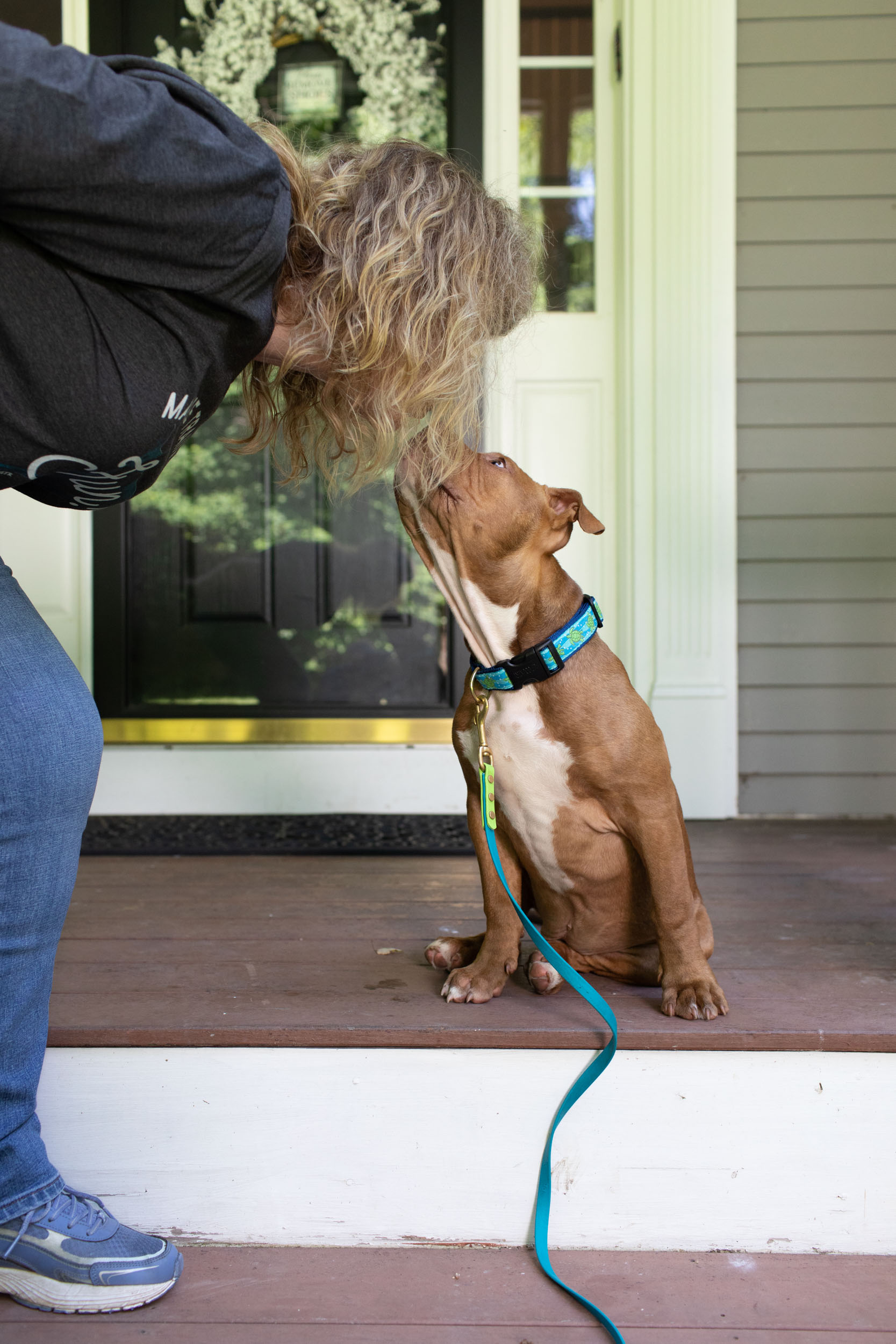Pets and Their People Blog
Ask a Trainer: When Will My Puppy Stop Biting Me?!
Q. Is there a time when I can stop training my puppy? He’s 12 weeks old now. When will he stop biting me? –– via Facebook Messenger
A. It’s great that you’re seeking guidance on training your puppy!
Puppy Biting
At 12 weeks old, your puppy is still in the early stages of development. Puppy biting is a common behavior at this age, as they explore their environments and learn about their surroundings through their mouths.
Puppy biting is a natural part of their teething process and social development, but it can be frustrating. Make sure your puppy has a variety of toys and chews designed for teething puppies. This strategy can help redirect their biting behavior onto appropriate objects. Rotating your toys can keep your puppy from being bored.
As for when your puppy will stop biting, this behavior tends to decrease as they grow older and their adult teeth come in, usually around 6-8 months of age. This is just a guide. Some dogs may continue to mouth or nip in certain situations, so ongoing training and reinforcement are important.
The puppy biting can be frustrating, and it hurts, but it’s important to not punish or startle your puppy. Punishing puppies for biting can fracture the bond you are working to create, leave a void in your training, and can contribute to fear.
Also, dogs have a natural need to chew for life – so be sure to continue to provide plenty of chewing activities to tap into those genetic requirements.
Training Your Puppy
Regarding when you can stop training your puppy, training is an ongoing process. Dogs of all ages benefit from consistent training and positive reinforcement. Basic good manners training and socialization should continue throughout your dog’s life to maintain good behavior.
Of course, as your puppy becomes more fluent in the behaviors you teach, you won’t have to practice as much. I call this the fire drill method of training. Practice the skills to keep them fresh so your puppy (and eventually full-grown dog) will be able to do the skills when you need them. On a fun note, the skills you are teaching are just tricks as far as your puppy is concerned. Keep it all fun!
Remember that each dog is unique, and while general guidelines can be helpful, it’s important to adapt your training approach based on your puppy’s individual needs. If you find that your puppy’s biting behavior is persistent or escalating, consider seeking guidance from a professional, force-free dog trainer.
About the Trainer

Kelly Fahey is the owner of PupScouts of Hunterdon. She is a puppy specialist and a Certified SA Pro Separation Anxiety Specialist. Kelly specializes in helping puppy parents navigate through the excitement and chaos of puppyhood and serves clients all over the country. Her family has raised 24 Seeing Eye puppies in addition to fostering puppies, and raising her own, personal puppies. Kelly’s vast puppy experience has helped her create a unique program for her clients to help turn the chaos to calm. In addition to helping clients with their puppy journey, Kelly enjoys assisting clients with overcoming the guilt, stress, and overwhelm of having a dog with separation anxiety and providing a plan so their dogs can be relaxed and calm while they are gone. You can reach Kelly through her website.

